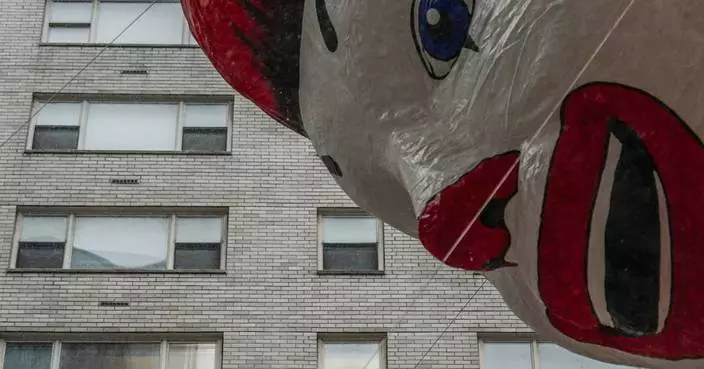MARRAKECH, Morocco (AP) — One of the Middle East and North Africa's largest film festivals opened Friday in Morocco, drawing actors and directors from throughout the world to present 70 features from 32 countries.
The Marrakech International Film Festival, now in its 21st year, will showcase Oscar contenders and screen films for members of the public. But unlike larger festivals in Venice, Cannes or Toronto, it places unique emphasis on emerging directors and films from the Middle East and Africa.
The roster of actors and directors who will participate in this year’s conversations and tributes includes Sean Penn, Alfonso Cuaron and David Cronenberg.
Remi Bonhomme, the festival's artistic director, said what makes the festival unique is its ability to draw talent on par with the world's largest festivals while also spotlighting up-and-coming directors from Morocco, the Middle East and Africa.
“We pay a lot of attention to countries that are underrepresented in cinema,” he said. “We support filmmakers who have their own voice, who develop a story that is in a specific context, whether it is Iran, Morocco or the U.S."
“But they don’t have to be the voice of their country. They have the need to have the freedom to express their own personal vision,” he added.
Among the themes that Bonhomme is excited about in this year's films is family. Filmmakers, including “The Seed of the Sacred Fig” director Mohammad Rasoulof, are “exploring social and political impact through the scale of a family,” Bonhomme said.
The festival opens Friday with “The Order” — a thriller starring Jude Law that chronicles an FBI manhunt for the leader of a white supremacist group.
The jury competition contains 14 first or second films. The nine-person jury includes actors Jacob Elordi and Andrew Garfield as well as Ali Abbasi, the Iranian-Danish director of “The Apprentice.” Luca Guadagnino, the Italian-Algerian director of “Queer” will preside over the jury.
The films in competition include Saïd Hamich's “Across the Sea” about a young Moroccan man's immigration to Marseille and Damian Kocur's “Under the Volcano,” Poland's Oscar entry for Best International Feature.
The festival — founded by Morocco's King Mohammed VI and is presided over by his brother Prince Moulay Rachid — plays a major role in showcasing and promoting Moroccan films and directors.
It has rarely shied away from diverse subject matter and this year will screen Moroccan films about immigration, homosexuality, bar performers and Moroccan communist Jews.

FILE -A view of the venue of the 2023 Marrakech International Film Festival in Marrakech, Morocco, Nov. 24, 2023. (AP Photo/Mosa'ab Elshamy, File)
KYIV, Ukraine (AP) — Desertion is starving the Ukrainian army of desperately needed manpower and crippling its battle plans at a crucial time in its war with Russia, which could put Kyiv at a clear disadvantage in future ceasefire talks.
Facing every imaginable shortage, tens of thousands of Ukrainian troops, tired and bereft, have walked away from combat and front-line positions to slide into anonymity, according to soldiers, lawyers and Ukrainian officials. Entire units have abandoned their posts, leaving defensive lines vulnerable and accelerating territorial losses, according to military commanders and soldiers.
Some take medical leave and never return, haunted by the traumas of war and demoralized by bleak prospects for victory. Others clash with commanders and refuse to carry out orders, sometimes in the middle of firefights.
“This problem is critical,” said Oleksandr Kovalenko, a Kyiv-based military analyst. “This is the third year of war, and this problem will only grow.”
Although Moscow has also been dealing with desertions, Ukrainians going AWOL have laid bare deeply rooted problems bedeviling their military and how Kyiv is managing the war, from the flawed mobilization drive to the overstretching and hollowing out of front-line units. It comes as the U.S. urges Ukraine to draft more troops, and allow for the conscription of those as young as 18.
The Associated Press spoke to two deserters, three lawyers, and a dozen Ukrainian officials and military commanders. Officials and commanders spoke on condition of anonymity to divulge classified information, while one deserter did so because he feared prosecution.
“It is clear that now, frankly speaking, we have already squeezed the maximum out of our people,” said an officer with the 72nd Brigade, who noted that desertion was one of the main reasons Ukraine lost the town of Vuhledar in October.
More than 100,000 soldiers have been charged under Ukraine’s desertion laws since Russia invaded in February 2022, according to the country’s General Prosecutor’s Office.
Nearly half have gone AWOL in the last year alone, after Kyiv launched an aggressive and controversial mobilization drive that government officials and military commanders concede has largely failed.
It's a staggeringly high number by any measure, as there were an estimated 300,000 Ukrainian soldiers engaged in combat before the mobilization drive began. And the actual number of deserters may be much higher. One lawmaker with knowledge of military matters estimated it could be as high as 200,000.
Many deserters don't return after being granted medical leave. Bone-tired by the constancy of war, they are psychologically and emotionally scarred. They feel guilt about being unable to summon the will to fight, anger over how the war effort is being led, and frustration that it seems unwinnable.
“Being quiet about a huge problem only harms our country,” said Serhii Hnezdilov, one of few soldiers to speak publicly about his choice to desert. He was charged shortly after the AP interviewed him in September.
Another deserter said he initially left his infantry unit with permission because he needed surgery. By the time his leave was up, he couldn’t bring himself to return.
He still has nightmares about the comrades he saw get killed.
“The best way to explain it is imagining you are sitting under incoming fire and from their (Russian) side, it’s 50 shells coming toward you, while from our side, it’s just one. Then you see how your friends are getting torn to pieces, and you realize that any second, it can happen to you,” he said.
“Meanwhile guys (Ukrainian soldiers) 10 kilometers (6 miles) away order you on the radio: ‘Go on, brace yourselves. Everything will be fine,’” he said.
Hnezdilov also left to seek medical help. Before undergoing surgery, he announced he was deserting. He said after five years of military service, he saw no hope of ever being demobilized, despite earlier promises by the country’s leadership.
“If there’s no end term (to military service), it turns into a prison – it becomes psychologically hard to find reasons to defend this country,” Hnezdilov said.
Desertion has turned battle plans into sand that slips through military commanders' fingertips.
The AP learned of cases in which defensive lines were severely compromised because entire units defied orders and abandoned their positions.
“Because of a lack of political will and poor management of troops, especially in the infantry, we certainly are not moving in a direction to properly defend the territories that we control now,” Hnezdilov said.
Ukraine’s military recorded a deficit of 4,000 troops on the front in September owing largely to deaths, injuries and desertions, according to a lawmaker. Most deserters were among recent recruits.
The head of one brigade’s legal service who is in charge of processing desertion cases and forwarding them to law enforcement said he's had many of them.
“The main thing is that they leave combat positions during hostilities and their comrades die because of it. We had several situations when units fled, small or large. They exposed their flanks, and the enemy came to these flanks and killed their brothers in arms, because those who stood on the positions did not know that there was no one else around,” the official said.
That is how Vuhledar, a hilltop town that Ukraine defended for two years, was lost in a matter of weeks in October, said the 72nd Brigade officer, who was among the very last to withdraw.
The 72nd was already stretched thin in the weeks before Vuhledar fell. Only one line battalion and two rifle battalions held the town near the end, and military leaders even began pulling units from them to support the flanks, the officer said. There should have been 120 men in each of the battalion’s companies, but some companies' ranks dropped to only 10 due to deaths, injuries and desertions, he said. About 20% of the soldiers missing from those companies had gone AWOL.
“The percentage has grown exponentially every month,” he added.
Reinforcements were sent once Russia wised up to Ukraine's weakened position and attacked. But then the reinforcements also left, the officer said. Because of this, when one of the 72nd Brigade battalions withdrew, its members were gunned down because they didn't know no one was covering them, he said.
Still, the officer harbors no ill will toward deserters.
“At this stage, I do not condemn any of the soldiers from my battalion and others. … Because everyone is just really tired,” he said.
Prosecutors and the military would rather not press charges against AWOL soldiers and do so only if they fail to persuade them to return, according to three military officers and a spokesperson for Ukraine’s State Investigative Bureau. Some deserters return, only to leave again.
Ukraine's General Staff said soldiers are given psychological support, but it didn't respond to emailed questions about the toll desertions are having on the battlefield.
Once soldiers are charged, defending them is tricky, said two lawyers who take such cases. They focus on their clients' psychological state when they left.
“People cannot psychologically cope with the situation they are in, and they are not provided with psychological help,” said attorney Tetyana Ivanova.
Soldiers acquitted of desertion due to psychological reasons set a dangerous precedent because “then almost everyone is justified (to leave), because there are almost no healthy people left (in the infantry),” she said.
Soldiers considering deserting have sought her advice. Several were being sent to fight near Vuhledar.
“They would not have taken the territory, they would not have conquered anything, but no one would have returned,” she said.
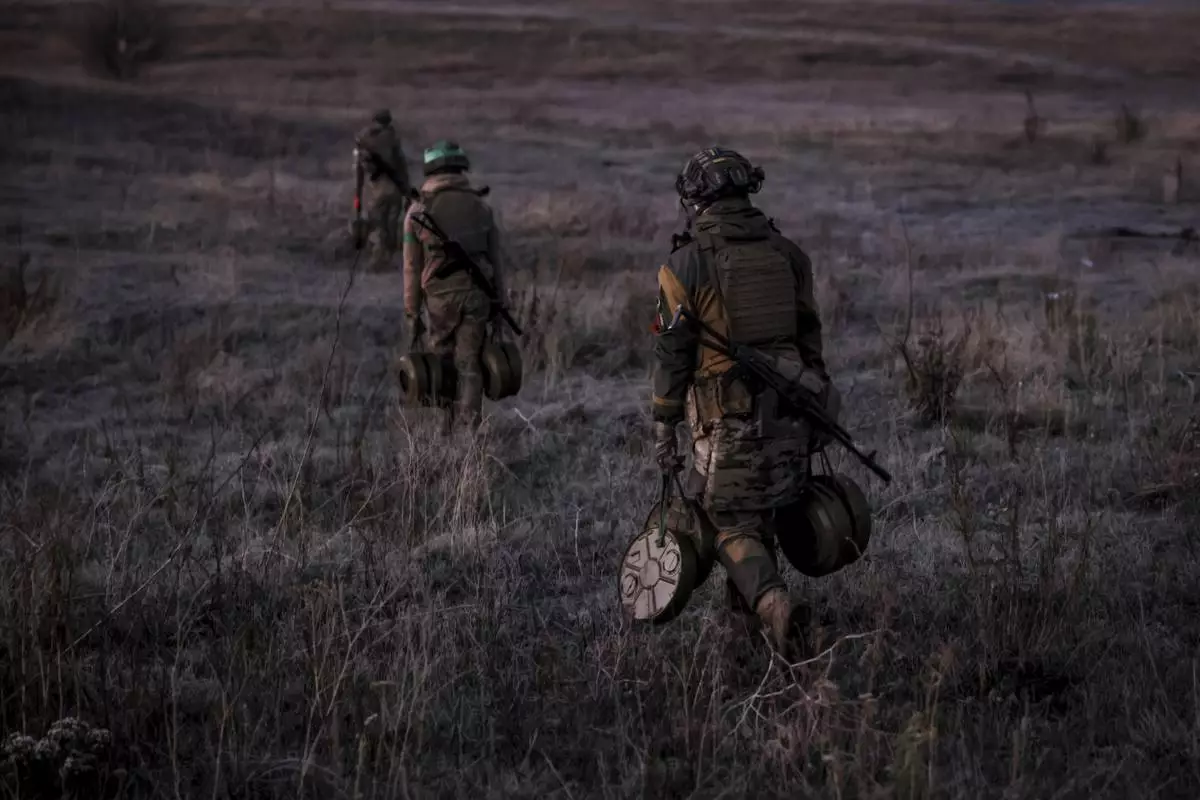
FILE - In this photo provided by Ukraine's 24th Mechanised Brigade press service, servicemen of the 24th Mechanised Brigade install anti-tank landmines and non explosive obstacles along the front line near Chasiv Yar town in Donetsk region, Ukraine, on Oct. 30, 2024. (Oleg Petrasiuk/Ukrainian 24th Mechanised Brigade via AP, File)
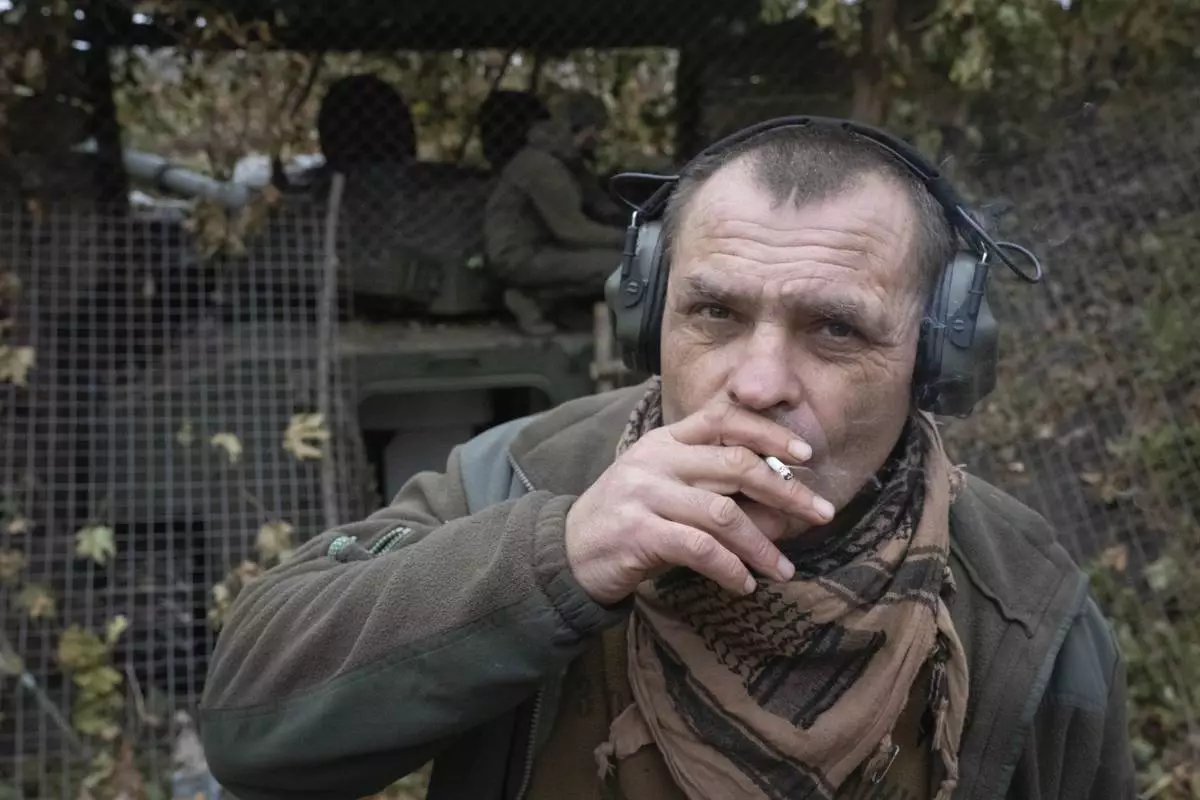
FILE - Volodymyr, a 51 year old soldier of Ukraine's 57th motorised brigade smokes near self-propelled artillery howitzer "Gvozdika" on the front line in the Kharkiv region, Ukraine, on Nov. 7, 2024. (AP Photo/Efrem Lukatsky, File)
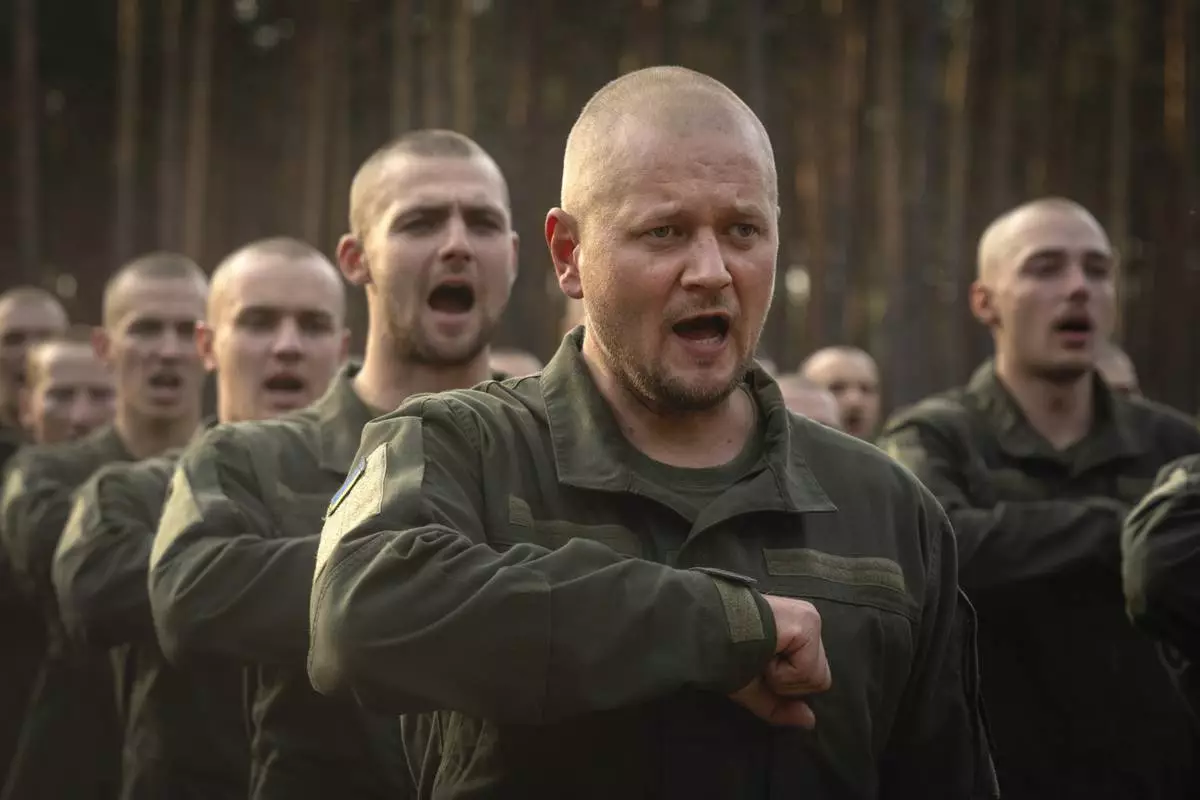
FILE - Newly recruited soldiers toss their hats as they celebrate the end of their training at a military base close to Kyiv, Ukraine, on Sept. 25, 2023. (AP Photo/Efrem Lukatsky, File)
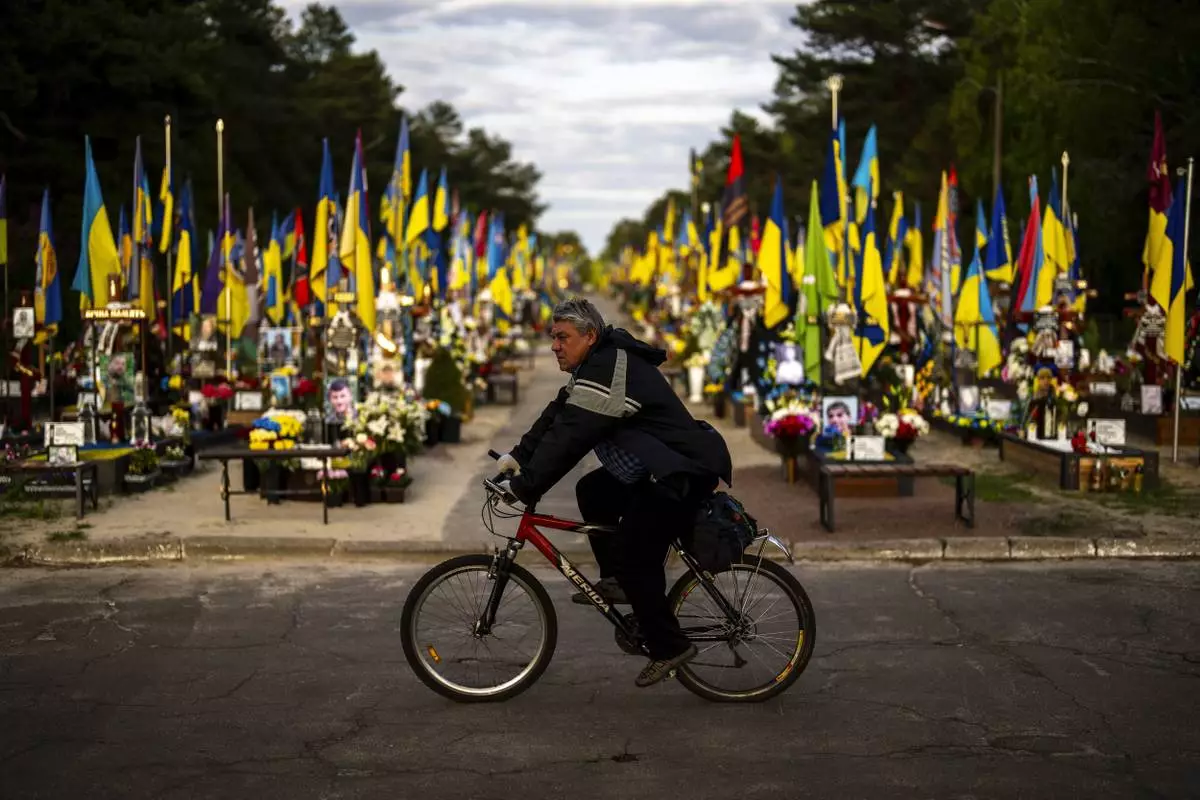
FILE - A man rides a bicycle past the tombs of Ukrainian soldiers killed during the war, at Lisove cemetery in Kyiv, Ukraine, on April 23, 2024. (AP Photo/Francisco Seco, File)
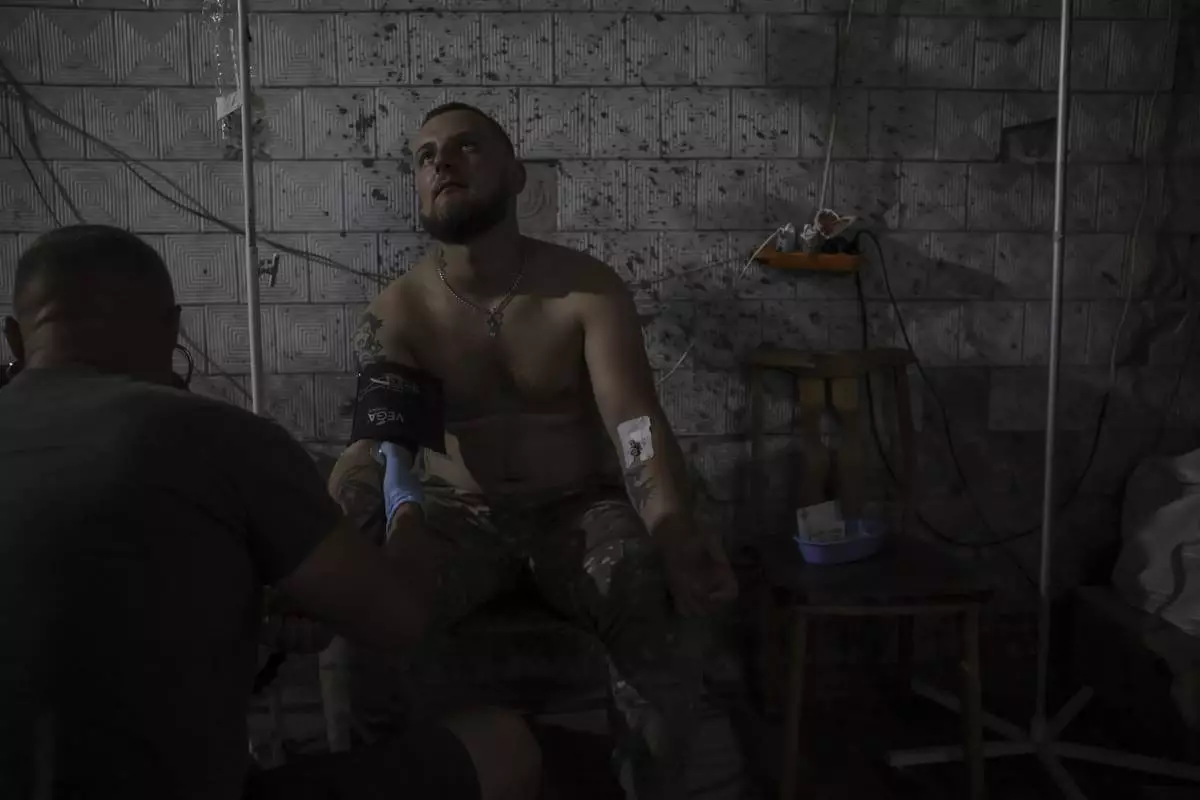
FILE - In this photo taken on July 9, 2024 and provided by Ukraine's 24th Mechanised Brigade press service, a military medics give first aid to a wounded Ukrainian soldier at a medical stabilisation point near Chasiv Yar, Donetsk region, Ukraine, on July 9, 2024, (Oleg Petrasiuk/Ukraine's 24th Mechanised Brigade via AP, File)
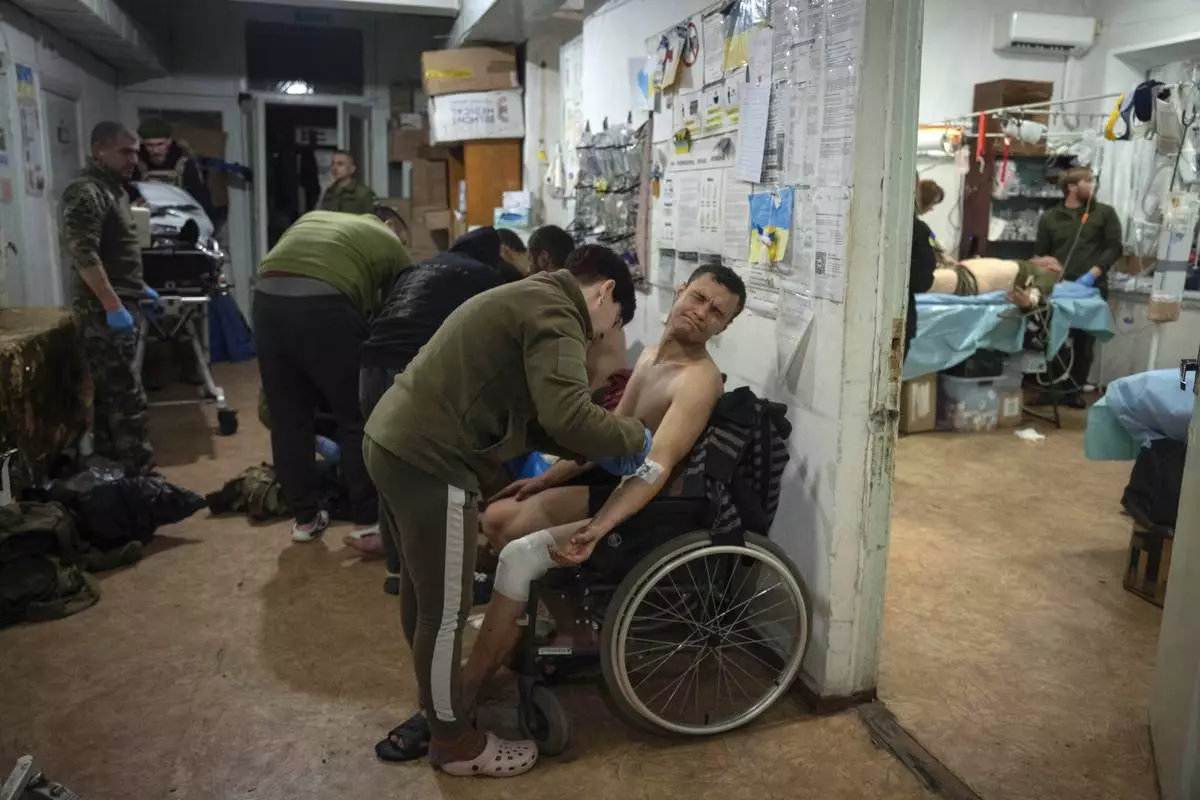
FILE - Military medics give first aid to wounded Ukrainian soldiers near Bakhmut, Ukraine, on Jan. 25, 2024. (AP Photo/Efrem Lukatsky, File)
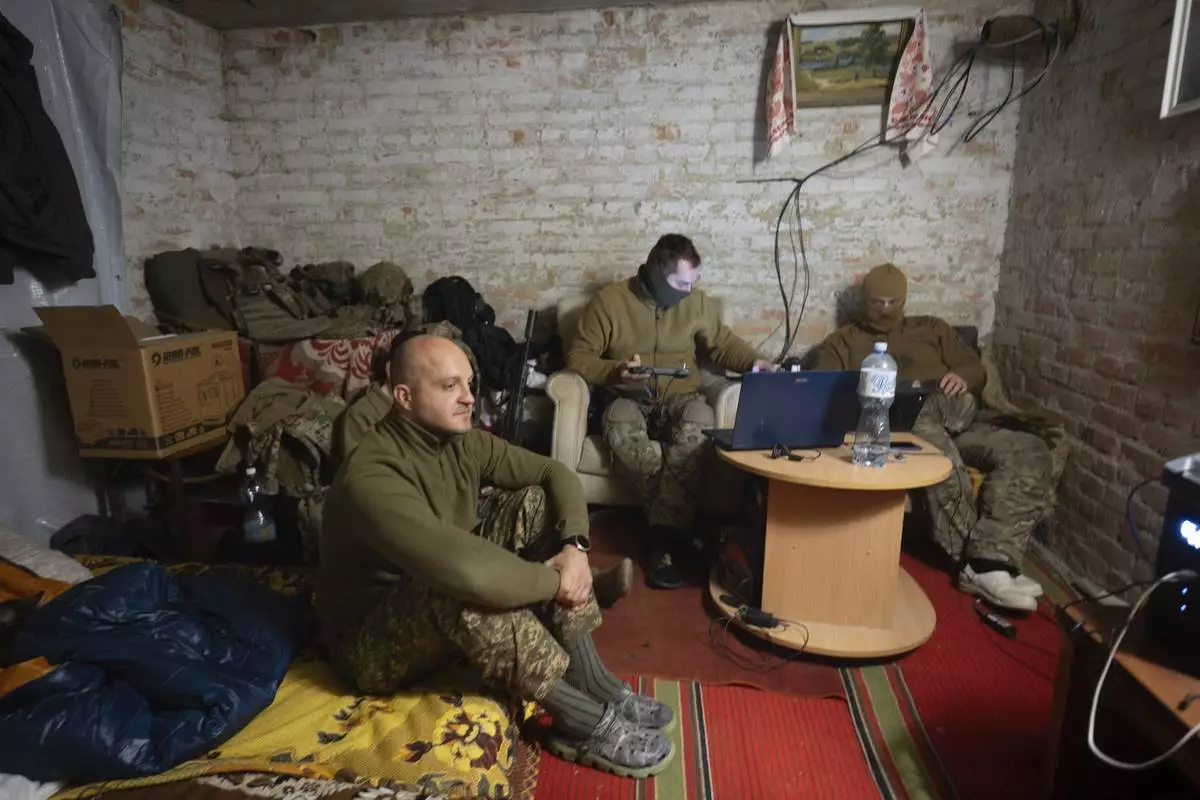
FILE - Ukraine's Khartia brigade officer, who goes by callsign Kit, left, sits while his soldiers pilot drones in a shelter on the frontline near Kharkiv, Ukraine, on Nov. 7, 2024. (AP Photo/Efrem Lukatsky, File)
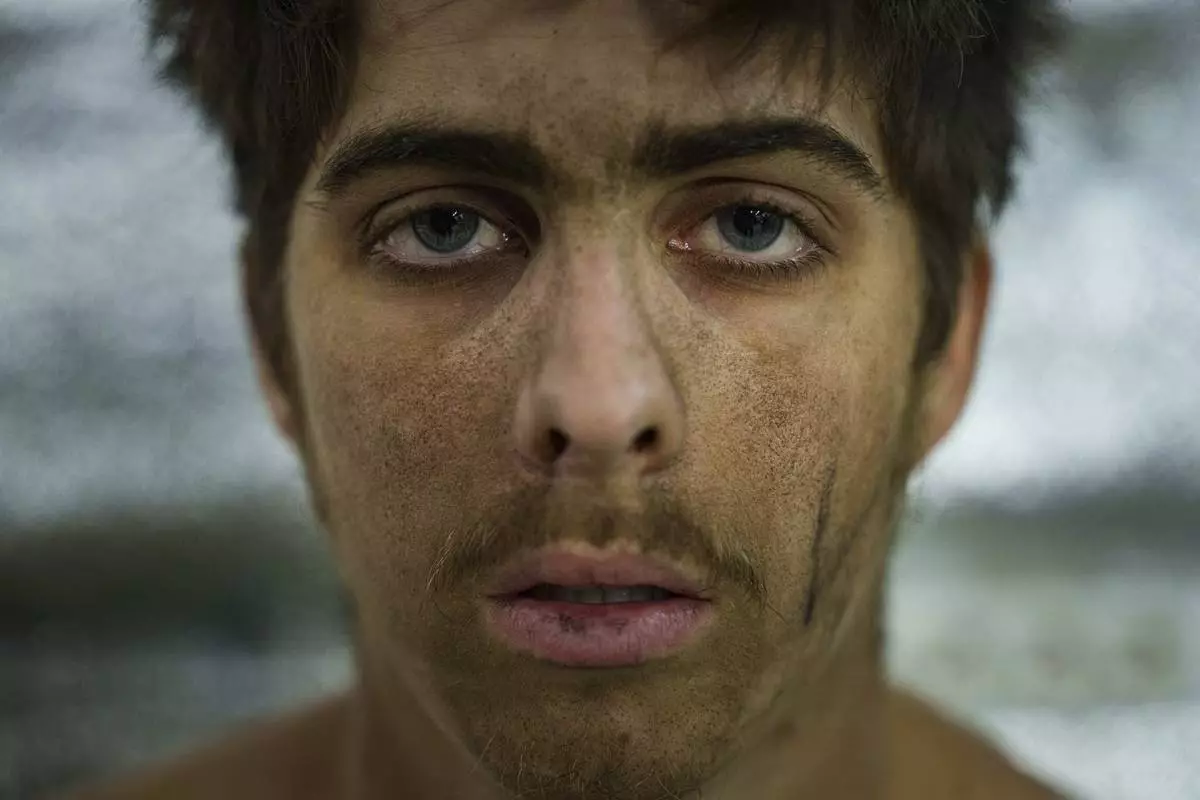
FILE - A shell-shocked Ukrainian soldier of the Azov brigade sits at the stabilization point after arriving from the front line, near Toretsk, Donetsk region, Ukraine, on Sept. 24, 2024. (AP Photo/Evgeniy Maloletka, File)
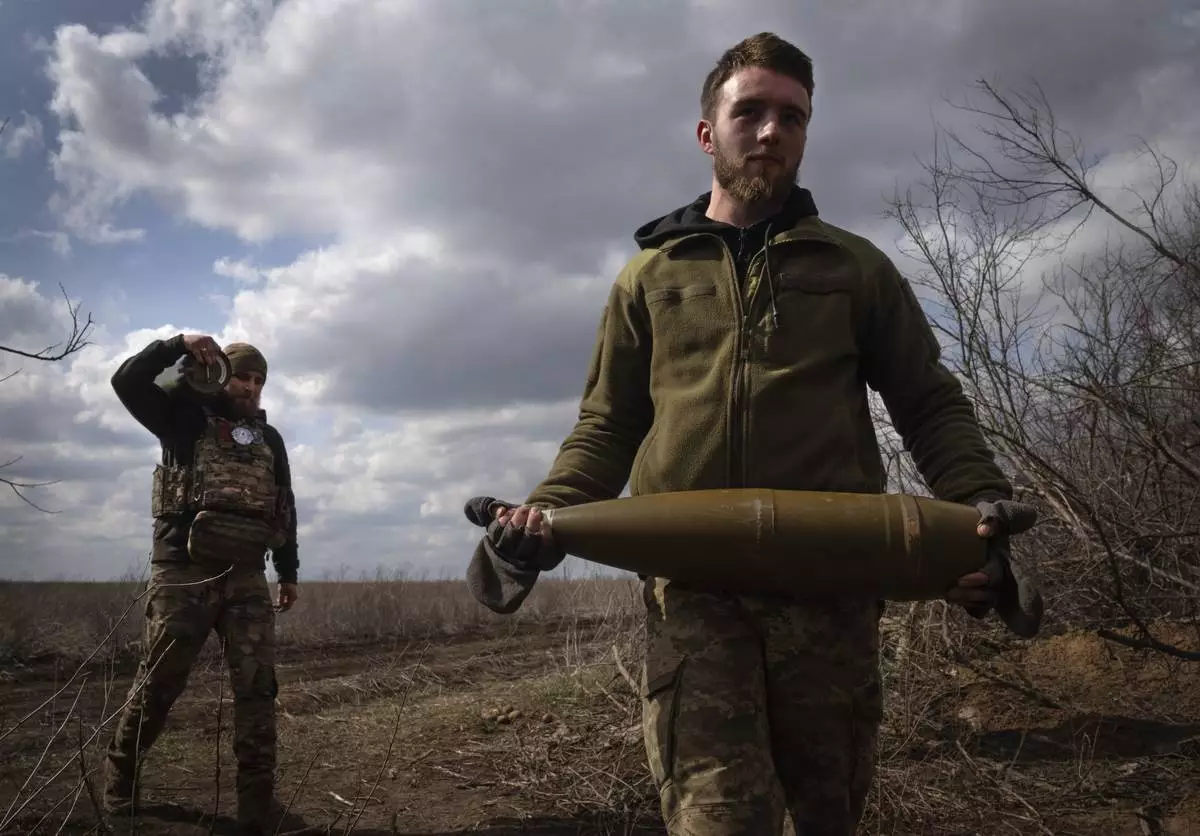
FILE - Ukrainian soldiers carry shells to fire at Russian positions on the front line, near the city of Bakhmut, in Ukraine's Donetsk region, on March 25, 2024. (AP Photo/Efrem Lukatsky, File)


















